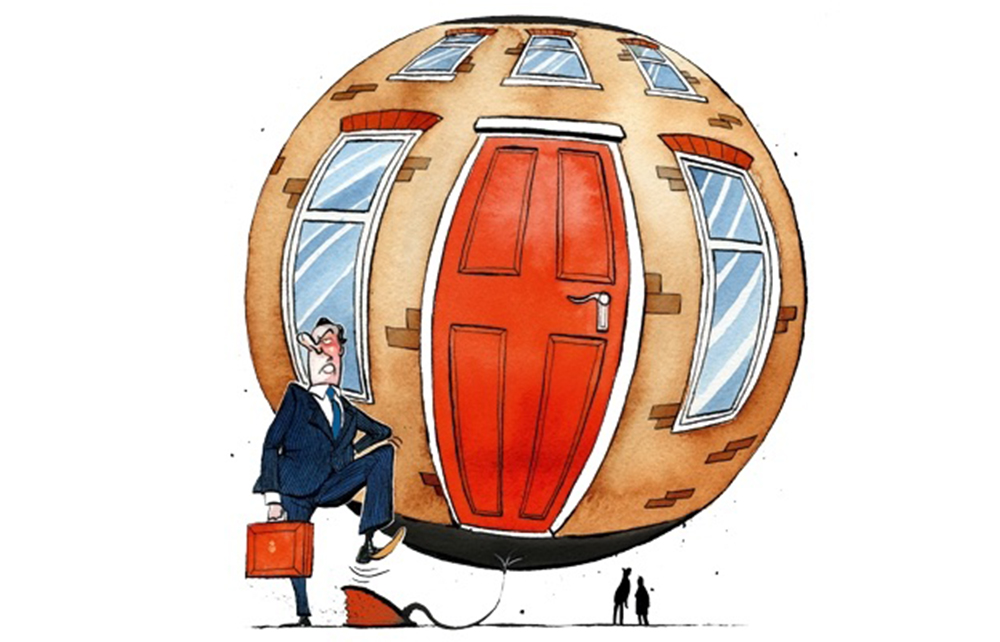The principal concerns of the electors vary rather more widely than the pollsters and pundits would suggest. One man in Guisborough – probably middle-aged, short of teeth, a little unkempt – suggested to me that the government needed to clamp down on foreigners importing bees into the country. This was being done covertly, he said. He himself had noticed a huge increase in the number of bees of late and – as a consequence of something he had read online – believed that this was clear evidence of smuggling. Why, I asked him, would people smuggle bees into the country? ‘That is exactly what I would like the authorities to find out,’ he replied.
Otherwise the chief complaints were the cost of living, potholes, idle skanky people, antisocial behaviour, immigration (sans bees) and, of course, Tory incompetence. In six weeks of campaigning, however, only one elector mentioned to me the parlous state of the National Health Service and how we needed to ‘save’ it. Nor was the issue raised at the only hustings in my constituency. It was, then, entirely absent from the general list of concerns – and this in an area which suffers worse than most from ill-health.
What we are told are crucial issues do not always accord with what the public thinks are crucial issues
I do wonder how issues become propelled to the top of the nation’s agenda – I suspect a kind of fix. When hectored by polling companies about the NHS, I think people feel compelled to say ‘Yes, I think that is very important’, partly because they have been schooled to repeat that mantra and partly because they believe, vaguely, that hospitals are an agreeable concept.
News programmes always put the NHS at the top of the list of stuff which needs doing and, in fairness, it is invariably the most discussed issue on the BBC’s Question Time. That, however, is because only the monomaniacally obsessive lefties apply to be in the Question Time audience, just as they are the only people to turn up to hustings or spend 90 per cent of their lives jabbering furiously on Twitter. In such a way, the agenda becomes gerrymandered.
I am not saying that the great bee-smuggling scandal should replace the NHS as an area of most concern, of course, but simply that what we are told are crucial issues do not always accord with what the public thinks are crucial issues. Housing is another case in point – a perfect example of the illusory truth effect in which familiarity with a lie can overpower rational thinking. We are told, endlessly, that we have a housing shortage – and as a consequence every major party (and indeed mine) pledged to build vast numbers of new homes, thus despoiling vast areas of our countryside (regardless of what those parties trot out to the contrary).
I do not doubt at all that we have grave problems with housing and its affordability in the south-east and our university cities. But as a country we do not have a shortage of housing – we have a surplus. According to the Office for National Statistics, we built just under two million additional dwellings between 2011 and 2021, while the number of households increased by only 1.4 million. The reason for this is that we use a predict-and-provide model for building houses and the predictions are very often wildly inaccurate – as indeed they were for the time period covered by the ONS survey.
We also have 699,126 empty homes, of which 261,000 are long-term unoccupied. The main reason for homes being empty is that the owners had intended to refurbish them to be leased out, but have latterly either been unable to pay for the costs of doing so or are now disinclined to do so.
Now, why might that be? I’m afraid that this is largely a consequence of Michael Gove trying very hard to be funky and left-wing. Indeed Michael, who I like very much, is one of the main reasons that there is a genuine crisis of unaffordability in the rental housing market in the south-east of England.
Here is the point: if you enact legislation to make it more difficult for landlords to evict tenants who don’t pay the rent, legislate to stop them raising the rents and in general make leasing a property a singularly unattractive proposition, what result do you think will occur? Yes, of course, you will receive plaudits from the charities. But you will also see a dramatic reduction in the number of people who are prepared to enter the market as landlords.

That is exactly what has happened in the past five years. Between March 2019 and March 2022 the number of rental properties available in the UK actually halved as a consequence of the government deciding to ‘reform’ the housing market, the majority of these erstwhile landlords either selling up or joining the Airbnb sector. This has greatly exacerbated what was already becoming a serious problem and has led, of course, to rents increasing as supply dwindles. Still, it enabled the Tories to be seen as the party which stuck it to the rich bastards who own more than one property.
Here is my suggestion. If you wish to reduce rents in the private sector by making more properties available, then be nice to landlords, rather than nasty. Encourage them to enter the market and allow them a little leeway in how they deal with their tenants. And stress, in a properly Conservative manner, that refurbishing a house to let out to other people is a laudable civic act, not something which should attract opprobrium and spite from the government.
Labour is planning 1.5 million new homes and the builders are rubbing their hands. I guarantee that the majority of these will be built where they are not remotely needed and we will have, where once there were fields and trees, large, dystopic, Ballardian estates built of plasterboard and misery, each with its own ghastly ‘community hub’ to which no sensible person will ever venture.








Comments